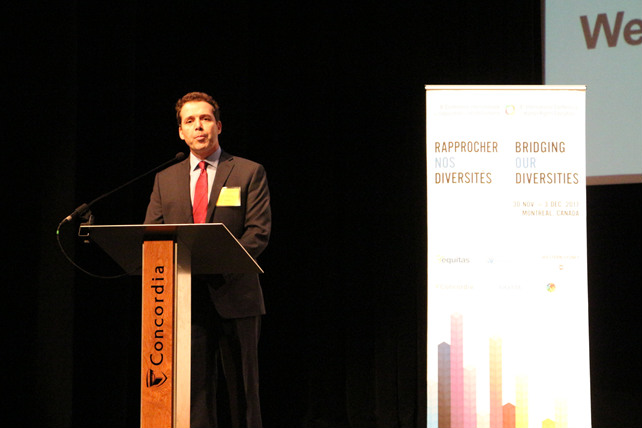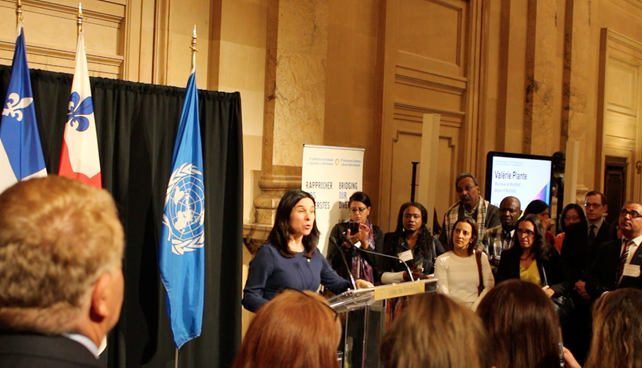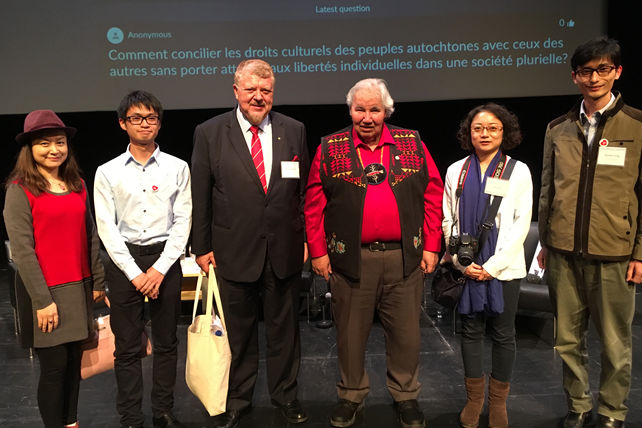ADHRRF – On the afternoon of December 3, 2017, the 8th International Conference on Human Rights Education came to a close at the Concordia University in Montreal. The conference deliberated on providing effective solutions to challenges currently confronting nations and the world in terms of diversity, tolerance, violence and extremism. Active exchanges and discussions were conducted on the field and directions of the development of global human rights education in the hope of building a more peaceful and equitable community.
The three-and-a-half-day meeting brought together over 20 guest speakers and more than 300 human rights workers from all over the world, including the executive director of the organizing entity, Mr. Ian Hamilton of the International Center for Human Rights Education and Senator Murray Sinclair, hosting a total of 70 study seminars. In response to the current global challenges, building a peaceful community, and jointly addressing the human rights issues, the conference discussed mainly about the value of “developing a dynamic human rights education.” A series of innovative and effective strategies and practices were documented.
During the meeting, four participants from The Church of Almighty God (CAG) exchanged ideas with guest speakers on human rights problems such as China’s freedom of religious belief and freedom of speech, stirring up some small discussions and resonance. They pointed out that there are no human rights in China at all, particularly under the CCP’s incessant suppression and persecution of Catholics and Christians. The human rights of Christians are often violated.
During the discussion, Andrew Gilmour (Assistant Secretary-General for Human Rights) from Canada expressed his opinion. He said that it is particularly difficult to carry out human rights education in some developing countries such as China.
After reading the 2017 Annual Report of the CAG and information of third-party reports, Professor Sev Ozdowski from the University of Sydney expressed sympathy for the Christians in China whose human rights have been seriously violated, and expressed support for their defense of human rights.
When asked about his view on China’s freedom of religion and human rights, Samson Salamat, a Pakistani human rights educator, candidly said that China is indeed among one of those countries in the world with the most serious human rights problems. There is still a need to continuously and actively seek ways to challenge the restrictions and pressures on human rights from government and the whole society.
It is reported that the International Conference on Human Rights Education was launched in 2010 by the practitioners, policy makers and academics, held annually in different countries, to explore innovative education solutions. This meeting was jointly organized by Equitas-International Center for Human Rights Education, the Office of the UN High Commissioner for Human Rights, Concordia University, McGill Center for Human Rights and Legal Pluralism, Western Sydney University, and Université du Québec à Montréal. The next International Conference on Human Rights will be held at Western Sydney University in Australia in November 2018.















